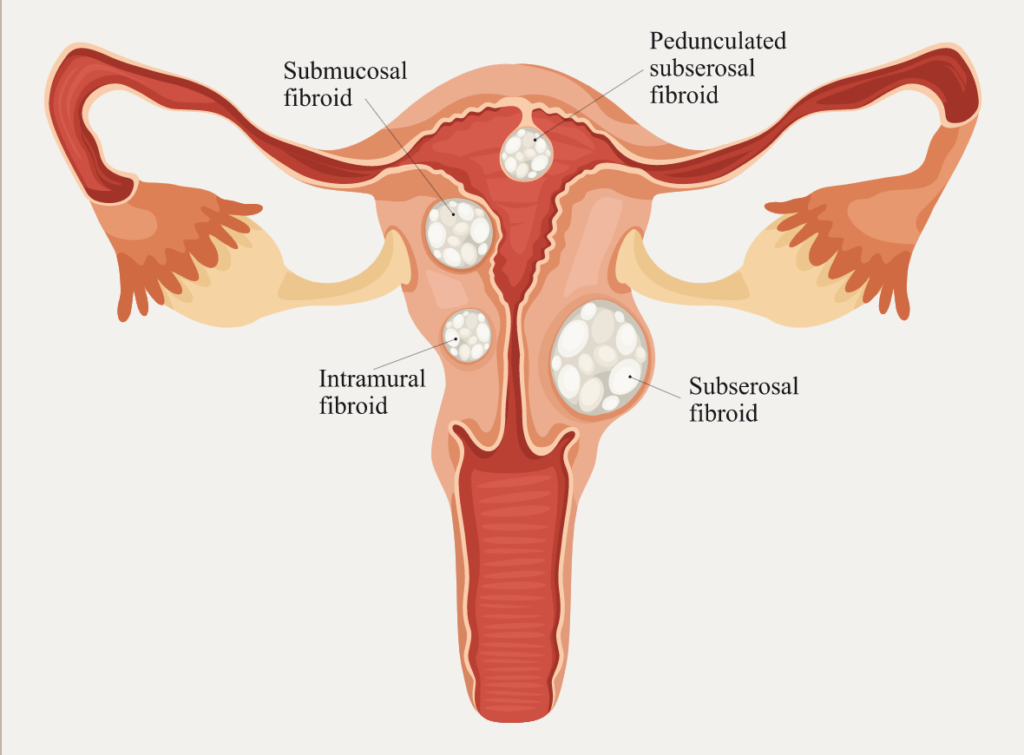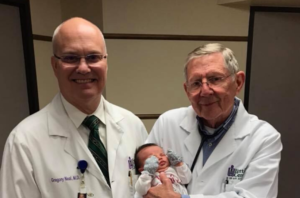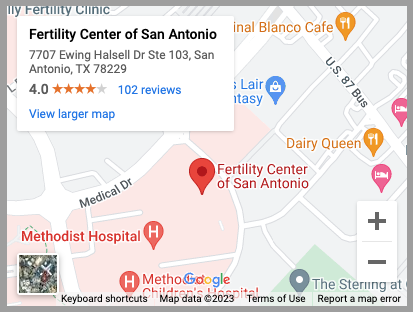Discover your path to parenthood today.
Uterine Fibroids and Infertility
Uterine fibroids are a common cause of infertility. Once one of our doctors has diagnosed the presence of uterine fibroids, he or she can recommend a treatment. Our medical director, Dr. Joseph E. Martin, has been helping hopeful parents grow their families for more than 30 years in San Antonio, TX. We can help you find the best way to achieve your dreams of parenthood.
What Are Uterine Fibroids?
Uterine fibroids are benign tumors consisting of connective tissue and smooth muscle cells. An estimated 70 to 80 percent of women will develop uterine fibroids at some point in their life. Not all uterine fibroids require treatment, and not all interfere with fertility. For that reason, some woman may choose to have their symptoms monitored rather than undergoing treatments.

Uterine fibroids can range in size, and can develop in different areas of the uterus. Some are about the size of a pea, while others can grow to be as large as a melon.
The causes of uterine fibroids are still largely unknown, although there is thought to be a strong genetic component.
Depending on the location of the tumors, they can prevent or interfere with conception. A fibroid may stop a fertilized egg from implanting properly in the uterus, for example.
Even when a woman with uterine fibroids becomes pregnant, she faces a higher risk of developing complications such as:
- Bleeding
- Miscarriage
- Mispositioned baby during delivery
- Early delivery
- Obstructed labor
- Postpartum hemorrhage
Symptoms of Uterine Fibroids
Due to the benign nature of uterine fibroids, most women do not realize they have them until undergoing an exam. For women with larger fibroids, symptoms can include:
- Heavy and painful periods
- Pain during intercourse
- Constipation
- Frequent need to urinate
- Pressure near the bladder
How Are Uterine Fibroids Diagnosed?
Uterine fibroids are often found during routine exams. To properly diagnose these benign tumors, one of our doctors may use:
- Ultrasound: This diagnostic technique can provide images of your uterus.
- Lab tests: Tests such as a complete blood count (CBC) may be used to rule out conditions such as anemia as the cause of blood loss.
- Magnetic resonance imaging (MRI): This imaging technique shows the size and location of fibroids.
- Hysterosonography: Also known as a saline infusion sonogram, this test uses sterile saline to expand the uterine cavity.
- Hysterosalpingography: This advanced imaging technique uses a dye to detail the uterus and fallopian tubes.
- Hysteroscopy: One of our doctors inserts a small endoscope through the cervix and into the uterus. The endoscope transmits images of the uterus to a video screen, allowing your physician to perform a close analysis.
Once diagnosed, uterine fibroids are highly treatable through medication and various types of surgery. In rare cases, a hysterectomy may be necessary.
Book a Consultation
If you are having difficulty becoming pregnant, schedule a consultation with one of our doctors. If your doctor confirms the presence of uterine fibroids, he or she can determine if treatment is necessary and recommend the best approach. If you are concerned about the affordability of treatment, our clinic offers financing options through Prosper Healthcare Lending and Lending Club Patient Solutions. We also work with most insurance providers. To book your consultation, contact our office online or call (210) 692-0577.











